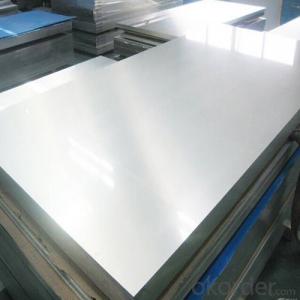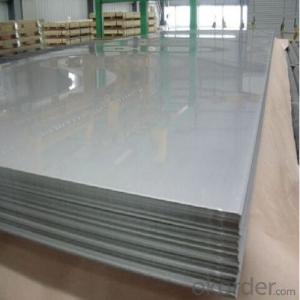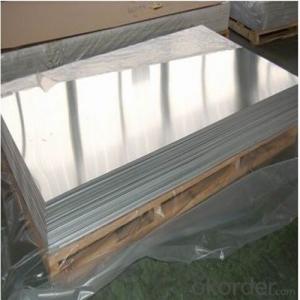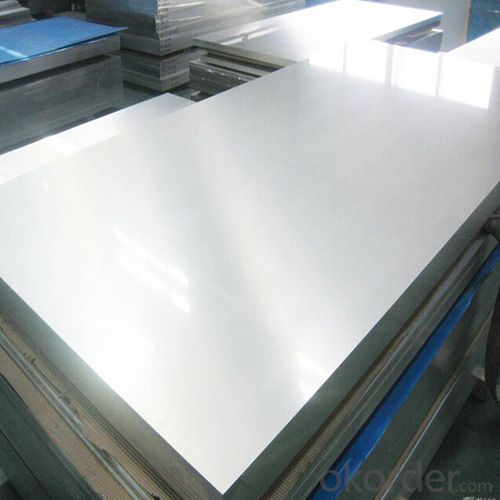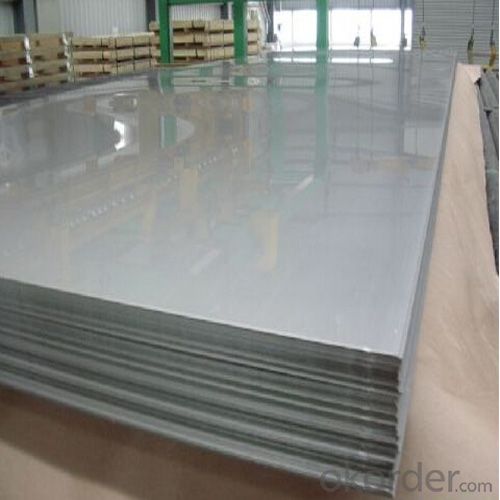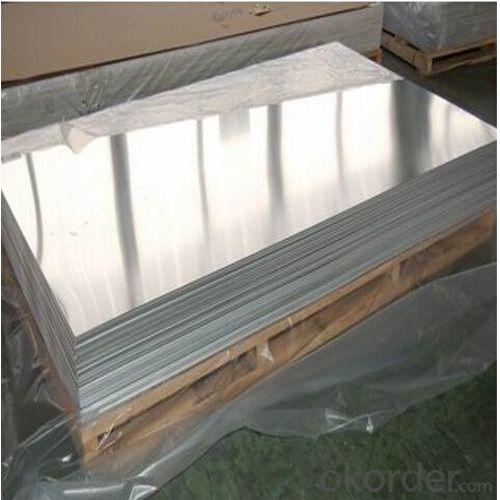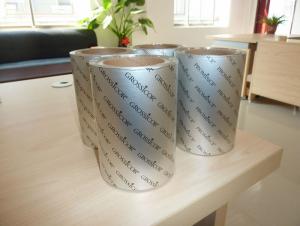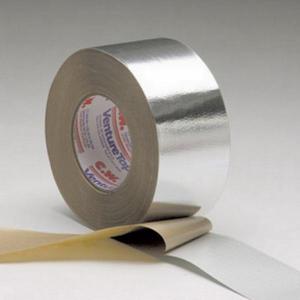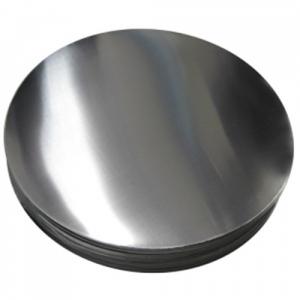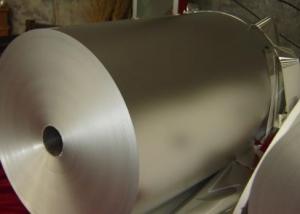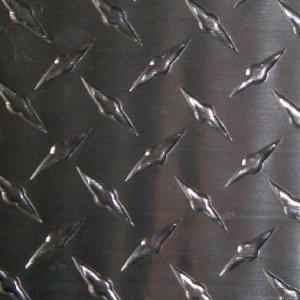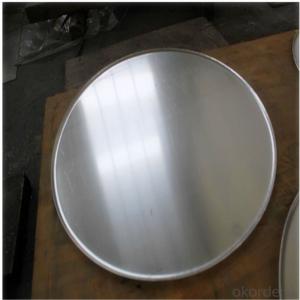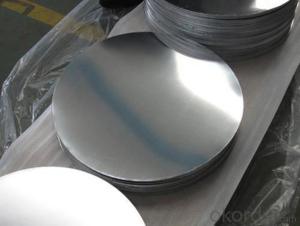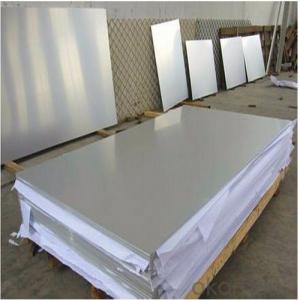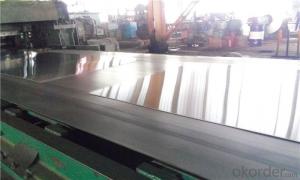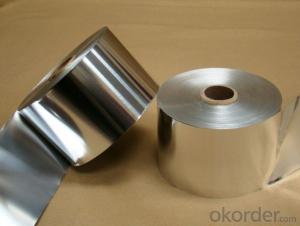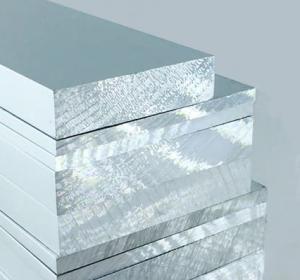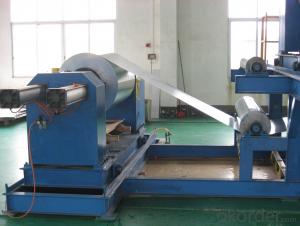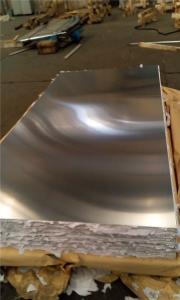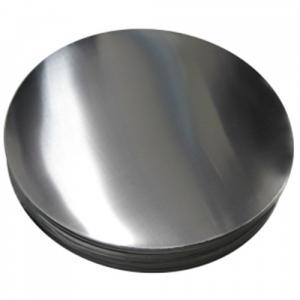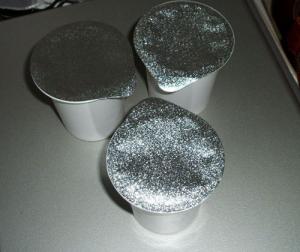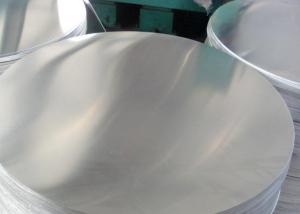Aluminum Corrosion Resistance 5052 Aluminum Plate
- Loading Port:
- Shanghai
- Payment Terms:
- TT OR LC
- Min Order Qty:
- 5 m.t
- Supply Capability:
- 10000 m.t/month
OKorder Service Pledge
OKorder Financial Service
You Might Also Like
Specification
1.Structure of Corrosion Resistance 5052 Aluminum PlateDescription:
5000 series aluminum alloy is a common aluminum alloy series, the main alloy elements are magnesium, the content of magnesium is 3-5%.It's non-Heat treatable aluminum alloy with good corrosion resistance, good machinability, good electric arc welding performance,beautiful surface after anodic treatment.Commonly used in aviation,shipping field,also extensive used in the conventional industry,such as cars,planes,welding pieces,Metro and light rail,need strict fireproof pressure vessel,such as liquid tankers,refrigerated trucks, refrigerated container,refrigeration equipment,television tower,drilling equipment,transportation equipment,missile parts,armor,etc.
2.Main Features of Corrosion Resistance 5052 Aluminum Plate:
Good Corrosion Resistance
Good Machinability
High Quality
Competitive Price
3. Corrosion Resistance 5052 Aluminum Plate Images:
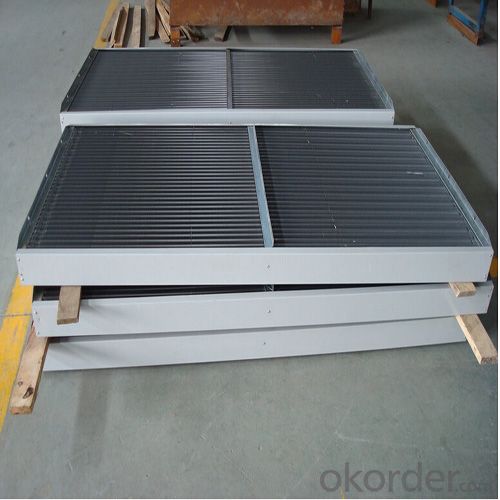
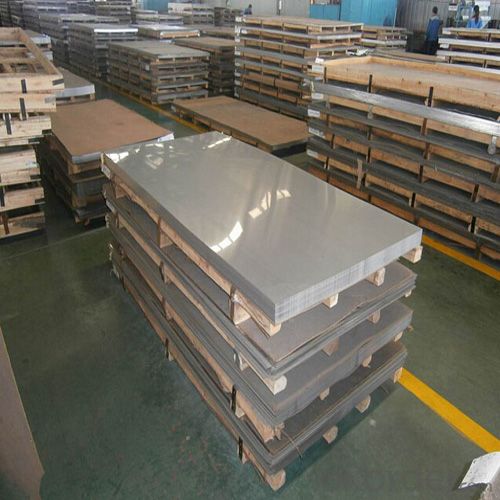
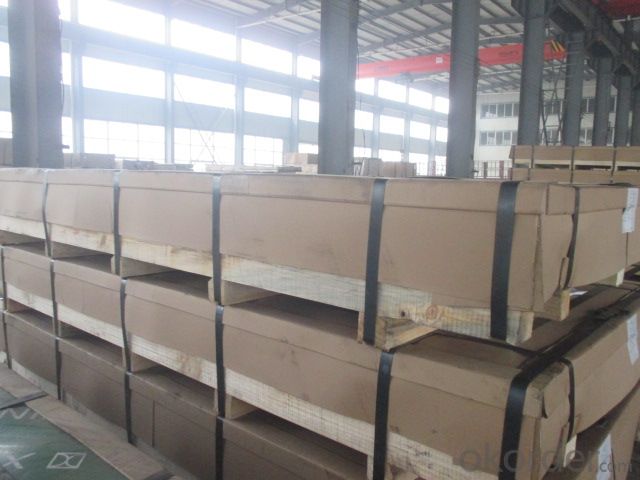
4. Corrosion Resistance 5052 Aluminum Plate Specification:
roduct | aluminum plates 5052 |
Material | 5052 |
Temper | H24 |
Dimension | 4.0mm*1500mm*3000mm |
Alloy or not | non-alloy |
Surface | mill finish,no stains,without a scratch or a graze,without rough selvedge |
Property | anti-corrosion,heat resistant,good plasticity |
Technical Standard | GB/T 3880-2006 |
Tensile strength | 120~145 MPa |
Elongation | ≥6% |
Application | storage device,decoration,pressure essels,construction,electrical equipment,etc |
5.FAQ
Q1.How long have you been in this product?
A1:More than 10 years.
Q2. What's the minium quantity(MOQ)?
A2. 5 Metric tons
Q3. How long is shipping time?
A3. 7 (ready-made products)-25 days(OEM)
Q4. How do you guarantee the quality?
A4. 1. Cooperating and Exchaning experience with sevral quoted aluminum companies
2. Japanese and Swiss production line and skilled works (regular training and testing)
3. more than 10 years production experience.
Q5. Do you have after sale service?
A5. Yes. Any quality problem occurs within one year, pls take photoes,we will be responsible.
- Q: Is aluminum a suitable material for use in electronic equipment?
- <p>Yes, aluminum is widely used in electronic equipment due to its excellent electrical conductivity, lightweight nature, and high thermal conductivity. It is commonly used in heat sinks, cases, and connectors. However, it is not as conductive as copper, so it is often used in applications where its other properties are more critical. Additionally, aluminum's corrosion resistance makes it a durable choice for various electronic components.</p>
- Q: Is it possible to create jewelry using pure aluminum?
- <p>Yes, pure aluminum can be used to make jewelry, but it's not commonly used for fine jewelry due to its lower value and potential for oxidation. While it is lightweight and affordable, it lacks the luster and durability of precious metals like gold, silver, or platinum. Aluminum can tarnish and may cause allergic reactions in some individuals. It is more commonly used in costume jewelry or for specific designs where its properties are advantageous.</p>
- Q: What are the various applications of aluminum oxide in different industries and daily life?
- <p>Aluminum oxide, also known as alumina, has a wide range of applications due to its hardness and other properties. It is used as an abrasive in products like sandpaper and grinding wheels. In the electronics industry, it serves as a substrate for semiconductor devices. It's also a key component in the production of aluminum metal through the Hall-H茅roult process. In the medical field, aluminum oxide is used in dental materials and as an antiperspirant. Additionally, it's found in cosmetics, ceramics, and as a catalyst in various chemical processes.</p>
- Q: Is it possible to utilize aluminum in the manufacturing process of solar panels?
- <p>Yes, aluminum is indeed used in the production of solar panels. It is primarily employed as a component of the frame that supports and protects the panel. Aluminum's light weight, high strength, and corrosion resistance make it an ideal material for this purpose. Additionally, aluminum can be used in the backsheet of the solar panel, providing structural support and helping to protect the panel from environmental factors. However, aluminum is not used in the actual photovoltaic cells that convert sunlight into electricity; those are typically made from silicon.</p>
- Q: Besides other special pots, can other aluminum pots be used?
- Aluminum pots are not working wellChasing the answerAluminum pots are not working wellStainless steel pots available.
- Q: Is there any health risk associated with using pure aluminum cookware?
- <p>Using pure aluminum cooking utensils is generally considered safe for most people. However, there are some concerns regarding the potential for aluminum to leach into food, especially at high temperatures or with acidic foods. While the health risks are still a subject of debate, it's recommended to use aluminum cookware with a protective coating or opt for utensils made from other materials like stainless steel or cast iron for long-term health considerations.</p>
- Q: What measures should be taken to ensure safety while working with aluminum?
- <p>When working with aluminum, it's important to follow safety precautions. Always wear appropriate personal protective equipment (PPE) such as gloves, safety glasses, and a dust mask to prevent inhalation of aluminum dust. Ensure good ventilation to avoid the buildup of fumes. Use proper tools and equipment to handle aluminum, as it can become sharp and cause cuts. Be cautious of the heat generated during cutting or welding, as aluminum conducts heat quickly and can cause burns. Store aluminum in a dry place to prevent it from reacting with moisture, which can cause it to corrode. Lastly, be aware of the fire hazard associated with aluminum dust and take necessary fire prevention measures.</p>
- Q: Is it safe to use pure aluminum for baking or roasting food in a traditional oven or grill?
- <p>While pure aluminum is a common material in cookware, it's not recommended for direct use in baking or roasting food in a traditional oven or grill. Aluminum can react with acidic foods, potentially leaching aluminum into the food. Additionally, aluminum foil can burn and create a hazardous situation. For baking or roasting, it's safer to use materials specifically designed for these purposes, such as parchment paper, silicone baking mats, or oven-safe dishes.</p>
- Q: What are the various applications and benefits of using aluminum in the automotive industry?
- <p>Aluminum is widely used in automobiles for its lightweight properties, which improve fuel efficiency and reduce emissions. It's used in engine parts, such as pistons and cylinder heads, to decrease weight and increase performance. Aluminum is also used in body panels, wheels, and suspension components, enhancing vehicle handling and reducing unsprung weight. Additionally, aluminum's corrosion resistance makes it ideal for exterior parts, and its recyclability aligns with environmental sustainability efforts in the automotive industry.</p>
- Q: What are the methods to decrease the expenses associated with recycling aluminum?
- <p>Yes, there are several ways to reduce the cost of recycling aluminum. One effective method is to improve collection efficiency by consolidating recycling programs and using smart waste management systems. Another approach is to invest in advanced recycling technologies that can sort and process materials more efficiently. Additionally, increasing consumer awareness about the importance of recycling and encouraging participation can lead to higher volumes of recycled materials, which can lower per-unit processing costs. Lastly, government incentives and subsidies can help offset the costs of recycling operations, making it more economically viable.</p>
Send your message to us
Aluminum Corrosion Resistance 5052 Aluminum Plate
- Loading Port:
- Shanghai
- Payment Terms:
- TT OR LC
- Min Order Qty:
- 5 m.t
- Supply Capability:
- 10000 m.t/month
OKorder Service Pledge
OKorder Financial Service
Similar products
Hot products
Hot Searches
Related keywords
